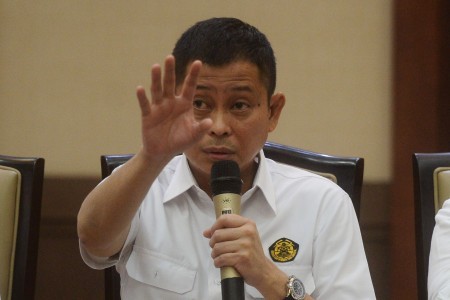Popular Reads
Top Results
Can't find what you're looking for?
View all search resultsPopular Reads
Top Results
Can't find what you're looking for?
View all search resultsGovt yet to agree to Engie’s energy project in Papua
Change text size
Gift Premium Articles
to Anyone
F
rench power utility Engie SA and energy company Electric Vine Industries (EVI) have to wait a little longer before realizing their plan to develop and operate solar photovoltaic smart microgrids in thousands of remote villages in Papua, as the government has not agreed to their electricity prices.
In mid-2017, the two firms signed a joint venture agreement in an effort to generate electricity for around 2.5 million people in 3,000 villages across Papua over a period of 20 years with a total investment value of around US$240 million.
However, Engie and EVI have yet to thrash out an agreement with the Energy and Mineral Resources Ministry over the number of targeted villages and the electricity price.
“They told us that the price of electricity to be sold to the public would be around Rp 10,000 [73 US cents] per kilowatt-hour. Then I asked them, would the public want to buy the electricity [at that price]?” Energy and Mineral Resources Minister Ignasius Jonan said Wednesday.
“If they still insist, just ask for a recommendation from the local administrations there [in Papua]. I don’t want to be blamed if I allow them to set that price.”
Johan De Saeger, Engie’s chief representative in Jakarta, said in March that the ministry had asked Engie to focus on electrifying 120 villages in Papua’s Yapen and Sentani areas first over a one-year period.
“Later we would like to roll out on a larger scale,” De Saeger said. (bbn)










